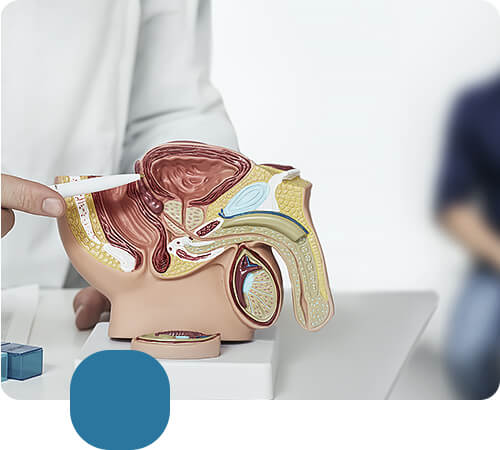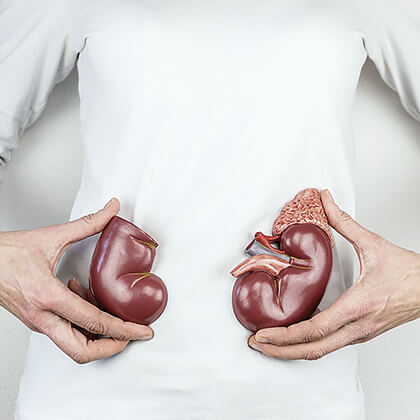
Only Older Men Suffer from Erectile Dysfunction

Contrary to popular belief, erectile dysfunction (ED) is not a condition confined only to the aging population. Scientific research has shown that this prevalent issue can affect men across a wide spectrum of ages, debunking the myth that it is an inevitable part of getting older. Factors such as stress, mental health conditions, and physical health can play significant roles, indicating that the roots of ED are multifaceted and not limited by age.
The prevalence of erectile dysfunction in younger individuals highlights the importance of understanding its underlying causes, which span beyond the physiological changes associated with aging. Studies reveal that psychological factors, including anxiety and depression, alongside physical conditions such as diabetes and hypertension, are significant contributors to ED in younger males. This evidences the complex interplay between mental and physical health in the development of erectile dysfunction.
Moreover, advancements in medical research have further illuminated the impact of lifestyle choices on erectile function, regardless of age. Habits such as smoking, excessive alcohol consumption, and a sedentary lifestyle have been linked to impaired vascular function, which is critical for erectile performance. This connection underscores the importance of comprehensive awareness and lifestyle management in mitigating the risk of ED across all age groups.
| Age Group | Prevalence of ED |
|---|---|
| Under 40 | Approximately 26% |
| 40-49 | Increasing prevalence |
| 50+ | Significantly higher, but not universal |
This data reinforces the notion that erectile dysfunction is not solely a geriatric issue but a medical condition that can afflict men at various stages of life. Such insights are imperative for fostering a more comprehensive understanding of ED, paving the way for more effective, personalized treatment approaches that are not constrained by age-related stereotypes.
Erectile Dysfunction Means Lack of Attraction
The perception that impotence signals a waning interest in one’s partner is a profound misconception that belies the complexity of human sexual health. In reality, what is erectile dysfunction (ED) has more to do with the vascular, neurological, or hormonal issues, rather than mere attraction. Blood flow disruptions, nerve damage, or hormonal imbalances can impede the ability to achieve or maintain an erection, irrespective of one's desire or emotional connection to a partner. This fact underscores the importance of distinguishing between physical incapacity and emotional disinterest, as they stem from radically different origins.
Furthermore, the psychological impact of ED itself can create a feedback loop, exacerbating the problem. Anxiety over performance or fear of sexual failure may compound physiological issues, yet these concerns are not rooted in the level of attraction towards a partner. Instead, they mirror the societal pressures and personal expectations placed on sexual prowess. This distinction is critical in understanding ED’s multifaceted nature, which straddles both physical and psychological realms. Addressing only one aspect without considering the other can hinder effective treatment and perpetuate misunderstandings about the condition's underlying causes.
Incorporating scientific insights into the discussion aids in dismantling myths surrounding ED. Advanced research clarifies that the mechanisms leading to erectile dysfunction are intricate, involving a delicate interplay of bodily systems. Such knowledge promotes a more empathetic and nuanced perspective towards ED, encouraging individuals to seek medical advice rather than jumping to conclusions about emotional detachment or lack of attraction. This approach not only enlightens the public about the realities of ED but also paves the way for more compassionate responses to those experiencing it.
Lifestyle Choices Don't Affect Erectile Dysfunction
Understanding the multifaceted nature of erectile dysfunction (ED) requires acknowledging the significant impact of lifestyle choices on its development and severity. Contrary to the common misconception, ED is not exclusively a condition of psychological origin or limited to the aging population. Scientific evidence increasingly points to the role of lifestyle factors in influencing sexual health. For instance, smoking has been directly linked to vascular changes that impede blood flow, a critical component of achieving and maintaining an erection. Similarly, excessive alcohol consumption and substance abuse can also lead to erectile dysfunction by altering the nervous system and hormonal balance, further complicating sexual performance and health.

Moreover, the role of diet and physical activity cannot be overstated. Research has shown that a diet high in processed foods and sugars can lead to conditions such as obesity, diabetes, and cardiovascular disease, all of which are risk factors for ED. Conversely, regular physical activity helps maintain vascular health and can improve blood flow, significantly lowering the risk of developing erectile dysfunction. Physical exercise also contributes to the mitigation of stress and anxiety, addressing some of the psychological aspects that can intertwine with ED.
The question of what is erectile dysfunction unveils a complex interplay of physiological, psychological, and lifestyle factors, emphasizing the need for a holistic approach to prevention and treatment. Nutritional interventions, along with moderation in alcohol consumption and cessation of smoking, are practical steps in addressing the underlying causes of ED. These lifestyle adjustments, supported by empirical evidence, underscore the importance of a comprehensive strategy that includes behavioral changes for managing and potentially reversing erectile dysfunction.
In addressing the misconceptions surrounding ED, it becomes evident that conversations and education on the influence of lifestyle choices are paramount. By demystifying the causes and highlighting preventable lifestyle factors, individuals can take proactive steps towards improving sexual health and overall well-being. This underscores the necessity of incorporating lifestyle modification as a pivotal component of erectile dysfunction management, moving beyond the oversimplification of the condition to a more nuanced and effective approach to treatment and prevention.
Erectile Dysfunction Is Purely a Psychological Problem
Erectile dysfunction (ED), characterized by the inability to develop or maintain an erection sufficient for satisfactory sexual performance, is a complex condition influenced by a myriad of both psychological and physiological factors. The common narrative that ED stems solely from mental or emotional issues oversimplifies this multifaceted disorder. Scientific studies have delineated that while psychological components such as stress, anxiety, and depression can significantly impact erectile function, underlying health problems like diabetes, hypertension, and atherosclerosis play a pivotal role in its etiology. This recognition of the interplay between mind and body underscores the importance of a comprehensive diagnostic approach to identify the contributing factors accurately.
The perpetuation of the myth that ED is just "in the head" undermines the necessity for thorough medical evaluation, which can uncover systemic health issues that may be the root cause. For example, endothelial dysfunction, a condition characterized by the impaired ability of blood vessels to dilate properly, is a common physiological underpinning of what is erectile dysfunction. It's crucial to understand that these physiological disruptions often coexist with psychological challenges, creating a cycle where one exacerbates the other. The acknowledgment of both domains is paramount in crafting an effective treatment strategy.
Furthermore, advancements in the understanding of erectile function have led to the development of targeted therapies that address specific physiological pathways involved in erection. Medications such as phosphodiesterase type 5 inhibitors, lifestyle modifications, and psychological counseling can be harmoniously integrated to treat ED. This multimodal treatment approach underscores the need to dismiss the oversimplified notion that ED is a problem of the mind alone and to adopt a more nuanced perspective that considers the broad spectrum of intersecting causes.
There's Only One Way to Treat Erectile Dysfunction
The prevailing notion that a singular therapeutic avenue exists for the management of erectile dysfunction (ED) is a profound simplification of a complex issue. Advances in medical science have illuminated a spectrum of treatment modalities tailored to the diverse etiologies and patient-specific factors underpinning this condition. Pharmacological interventions, embodying the first line of defense, leverage compounds such as sildenafil (Viagra), vardenafil (Levitra), and tadalafil (Cialis) to enhance erectile function by improving blood flow to the penis. Beyond the realm of prescription medications, vacuum erection devices, penile implants, and vascular surgery emerge as viable options for individuals unresponsive to pharmacotherapy or seeking alternative solutions.
Furthermore, the integration of psychological support and counseling underscores the acknowledgment of the multifaceted nature of erectile dysfunction. For a significant proportion of men, psychological stressors, including anxiety and depression, play a pivotal role in the genesis of ED. Addressing these underlying issues through therapy can often precipitate a marked improvement in sexual function. Additionally, lifestyle modifications including weight loss, exercise, and the cessation of smoking, have been demonstrated to exert a beneficial effect on erectile capacity, thereby highlighting the interplay between physical health and erectile function.
| Treatment Modality | Description | Benefits |
|---|---|---|
| Pharmacological Therapy | Use of medications such as sildenafil (Viagra) to improve blood flow. | Non-invasive, easy to administer, and effective for many men. |
| Vacuum Erection Devices | Devices that create a vacuum around the penis, leading to an erection. | Non-pharmacological, can be used multiple times. |
| Penile Implants | Surgical insertion of devices to allow penis rigidity. | Durable, long-term solution for ED. |
| Psychological Counseling | Addressing psychological factors such as stress or anxiety. | Targets the psychological aspects, offering a holistic approach to treatment. |
| Lifestyle Modifications | Changes in daily habits, such as exercise and diet. | Improves overall health and can directly enhance erectile function. |
In conclusion, the landscape of erectile dysfunction treatment is characterized by a rich tapestry of options, each tailored to the unique needs and conditions of the individual. The multi-dimensional nature of ED necessitates a comprehensive approach, encompassing not just immediate symptom relief but also long-term health and well-being. It is clear that understanding what is erectile dysfunction extends beyond merely acknowledging its existence, but also involves an awareness of the myriad of treatment pathways that science and medicine have made available.
Talking about It Makes the Problem Worse
Among the pervasive myths surrounding the management of erectile dysfunction (ED), the notion that discourse exacerbates the condition remains particularly misleading. Scientific evidence robustly negates this assumption, emphasizing instead the beneficial outcomes of open communication about ED, both with healthcare providers and intimate partners. Engaging in dialogue about ED can significantly enhance diagnosis and treatment efficacy. For instance, revealing symptoms and concerns to a physician can lead directly to the identification of underlying issues, such as cardiovascular diseases or diabetes, which could be contributing to the dysfunction. Moreover, discussions between partners regarding ED can alleviate psychological stress, enhance mutual understanding, and foster a supportive environment that may improve treatment outcomes.
The psychological component of ED is often underestimated, yet it plays a crucial role in the condition's management. Anxiety, depression, and relationship issues can potentiate erectile dysfunction, creating a feedback loop where the fear of sexual failure hinders sexual performance. In this context, communication acts as a therapeutic intervention. By demystifying ED within the sphere of a relationship, couples can redefine their sexual intimacy, exploring avenues beyond penetrative sex that satisfy both partners. This approach not only mitigates the psychological burden of ED but also reestablishes intimacy and connection, which are essential for sexual function.
Research underscores the value of psychosexual therapy, where communication is a fundamental tool. This therapeutic avenue provides tailored strategies to overcome ED-related challenges, incorporating both partners in the treatment process when applicable. It highlights the multifaceted nature of sexual health, where emotional, psychological, and physical components are interlinked. Thus, far from exacerbating the problem, open discussions about erectile dysfunction are indispensable. They pave the way for comprehensive treatment modalities that address both the symptoms and the root causes, facilitating a path towards recovery and sexual well-being.





